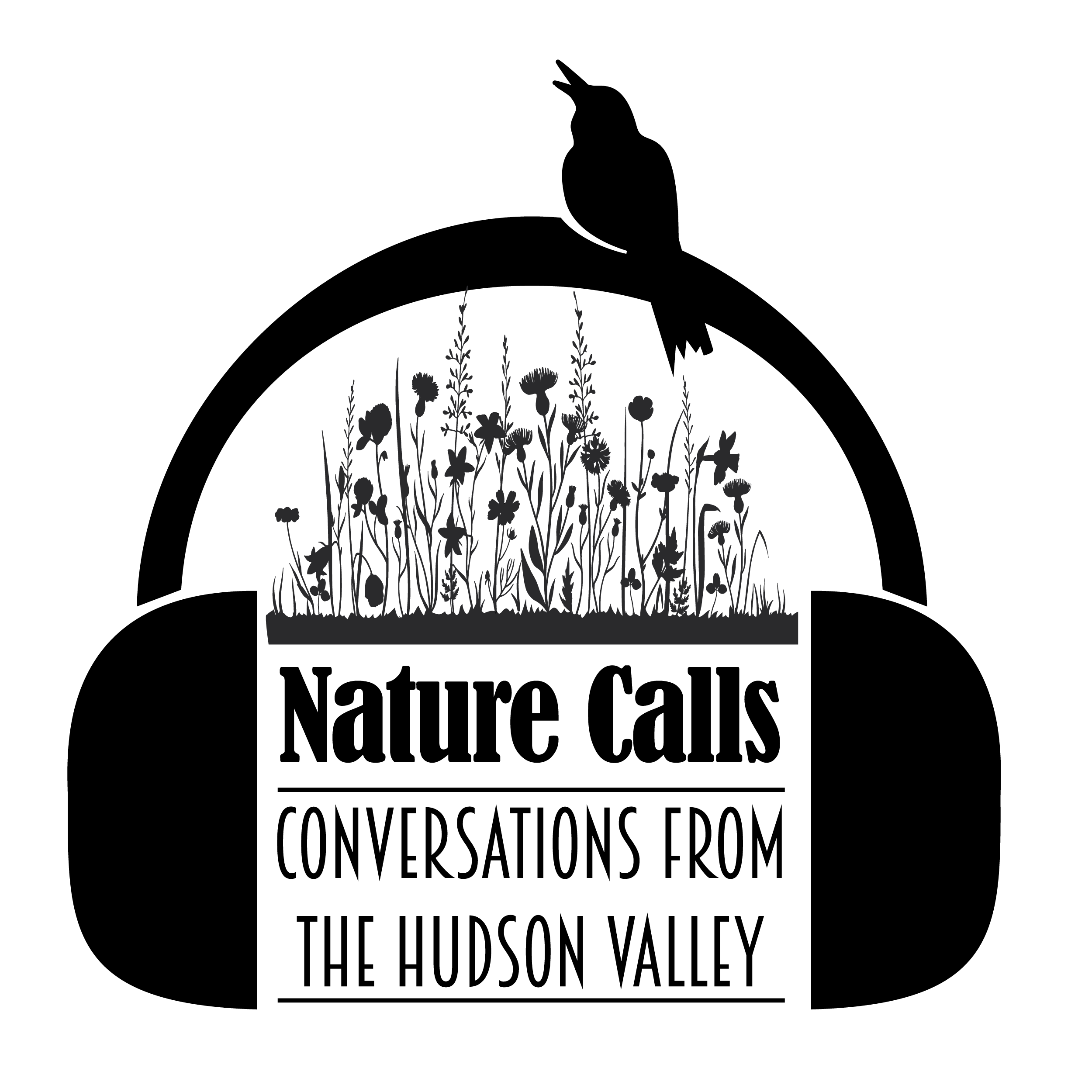Episodes
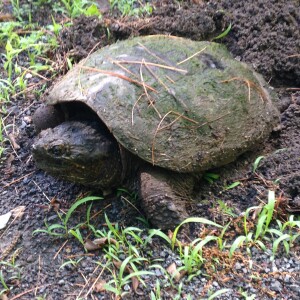
Thursday Feb 06, 2025
Episode 159: Snakes and Turtles
Thursday Feb 06, 2025
Thursday Feb 06, 2025
David MacDougall joins Nature Calls: Conversations from the Hudson Valley to talk about snakes, turtles, and other inhabitants of wetlands. Dave is a Certified Wildlife Biologist and a Consulting Biologist who also does site assessments and wetland delineations. Dave also wrote the Field Guide book about the Karner Blue butterfly that can typically be found in a pine barren.
Amphibians are semi aquatic beings, having adapted to inhabit a wide variety of habitats. Their life cycle typically starts as aquatic larvae and they later undergo metamorphosis to become an air-breathing adult with lungs. They are similar to reptiles but do require access to water bodies to breed. Amphibians and reptiles are both ecological indicators to habitat conditions which is why some of them are protected and/or endangered. Reptiles, unlike amphibians, have scales and their skin is dry. They include snakes, alligators, lizards, turtles and tortoises.
Snakes play a critical role in managing the environment including control of rodent, insect, and other invertebrate populations. A single rat snake can consume over 100 rodents a year. Snakes, in turn, are part of the diet of hawks and foxes. New York State is home to 17 different types of snakes, the most being the garter snake and the water snake. Non-venomous snakes also exist in the environment like garter, rat, milk, brown, and green snakes. Others like water snakes, black rat snakes, or black racers can be found in the area. There are only three types of venomous snakes in New York: eastern copperheads, timber rattlesnakes and the massaguas. They don't really want to bite you because if they do, they won't be able to eat for a week. Fundamentally, you're too big to waste their venom!
There are 18 species of turtles in New York State. The snapping turtle and the painted turtle are the most common. Others that can be found include bog turtles, eastern box turtles, wood turtles, and others that are on the list of threatened, endangered, or species of concern.
In this episode, you'll also learn about the Karner Blue butterfly and how climate change and development may be affecting the habitats of some of these species.
Hosts: Tim Kennelty and Jean Thomas
Guest: David MacDougall
Photo by: Jean Thomas
Production Support: Linda Aydlett, Deven Connelly, Teresa Golden, Amy Meadow, Xandra Powers, Annie Scibienski, Robin Smith
Resources
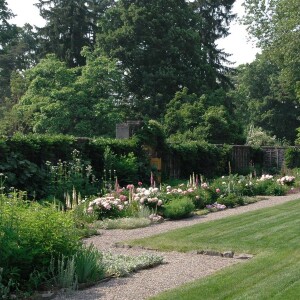
Thursday Jan 30, 2025
Episode 158: Beatrix Farrand Garden
Thursday Jan 30, 2025
Thursday Jan 30, 2025
The walled garden at Bellefield was originally created by one of America's most celebrated landscape architects, Beatrix Farrand (1872-1959), Renowned for the gardens she designed for some prestigious private universities and colleges, Bellefield represents a prime example of American garden design and one of Farrand's few surviving private commissions.
In 1911, Beatrix was asked to design a garden adjacent to a newly renovated house at Bellefield in Hyde Park, NY. She was influenced by several well-known landscape architects and garden designers early in her career and applied what she learned to this residential design commission located at the Franklin D. Roosevelt Historic Site.
The garden stretches from a terrace attached to the house and is enclosed by a stone wall and a hemlock hedge. The garden is divided into three 'rooms' defined by gravel walks, long planting beds, and areas of open lawn. The garden is laid out in forced perspective so that the sequentially smaller garden rooms further away from the house create the impression of a much larger space.
The planting beds along the gravelled walks and lawn are filled with layers of color with plants spilling over the vertical stone edging and taller plants stand next to the garden walls. The original plans also depicted an outline of a natural or wild garden beyond the walled area that incorporated several existing trees. The vegetation in this area was to serve as a transition to the surrounding lawns and trees.
Bellefield was donated to the National Park Service in 1976 to provide a protective buffer for the adjacent Franklin D. Roosevelt National Historic Site. The garden was carefully put to bed until 1993 when it was restored by the Beatrix Farrand Garden Association in partnership with the National Park Service. The restoration contains a stunning display of composed borders washed in pink, white, blush, cream, grey, mauve and purple. surrounded by vine covered walls and well maintained hemlock hedges.
Karen Waltuch talked with the Nature Calls: Conversations from the Hudson Valley podcast team to discuss more of the history of the Garden, what can be found there, how to visit it, and how to volunteer there. Karen joined the Beatrix Farrand Garden Association in 2018 after working at other public parks and gardens over many years. She is also a professional violist who has a diverse performance career.
After listening to this episode, you'll definitely want to visit this hidden gem in New York's Hudson Valley.
Hosts: Tim Kennelty and Jean Thomas
Guest: Karen Waltuch
Photo by: National Park Service
Production Support: Linda Aydlett, Deven Connelly, Teresa Golden, Xandra Powers, Amy Meadow, Annie Scibienski, Robin Smith, Jean Thomas
Resources
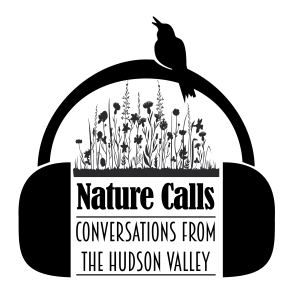
Thursday Jan 23, 2025
Episode 157: Garden Fit Season 2
Thursday Jan 23, 2025
Thursday Jan 23, 2025
Madeline Hooper rejoins the podcast Nature Calls: Conversations from the Hudson Valley to talk about the second season of GardenFit that is available on PBS. GardenFit is a delightful combination of stunning garden tours and practical tips helping viewers learn how to take care of their bodies while taking care of their gardens. Its fundamental premise is that gardening should be joyful, not painful.
The 13 episodes in Season 2 feature passionate gardeners who are also well-known artists, ranging from painters, sculptors, ceramicists, photographers, musicians, designers and culinary pioneers. Learn how creative artistry is often inspired by nature. Take a journey into how art can also spark a vision for an imaginative garden. The show also provides simple, easy-to-learn practical tips and tune-ups to prevent strain and stress , and like a garden tool, use the body correctly.
Madeline is from upstate New York (Columbia County) who has been a gardener for over 30 years. After an exciting career in public relations, a trustee of the Brooklyn Botanic Garden and then of the Berkshire Botanical Garden, she honed her gardening skills at Rockland Farm, a ten-acre property that she and her husband have developed from scratch over the past 25 years. The Rockland Farm is open a few times a year to benefit the Garden Conservancy’s Open Days program and the Berkshire Botanical Garden’s educational programs. She is very familiar with many aches and pains due to her daily gardening. Her personal trainer has taught her common-sense body movements and self-care to relieve the pains, enabling her to share these tips with us and truly enjoy being in the garden.
Host: Jean Thomas and Taly Hahn
Guest: Madeline Hooper
Photo by: Madeline Hooper
Production Support: Linda Aydlett, Deven Connelly, Teresa Golden, Tim Kennelty, Xandra Powers, Annie Scibienski, Eileen Simpson
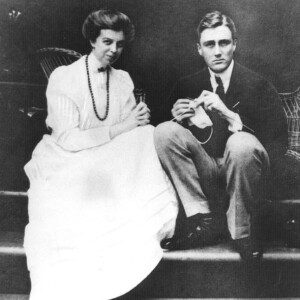
Thursday Jan 16, 2025
Episode 156: FDR Home Gardens
Thursday Jan 16, 2025
Thursday Jan 16, 2025
One thing the pandemic taught us is the importance of our National Parks. The Franklin D. Roosevelt National Historic Site is no exception. With over 300 acres of trails, gardens, Springwood (the FDR Homestead), and the FDR Presidential Library, this is a wonderful place that is worth a visit. Admission is free, but there is a fee if you'd like to tour the house. A home, a farm, and an experimental forestry plantation, Springwood is an enduring memorial to the 32nd and longest serving President of the United States. 33 acres were deeded to the National Park Service with instructions to maintain the house, flower gardens, orchard, and vegetable garden as they were during FDR’s time. The National Park Service opened the land to the public in 1946.
The nearly two acre FDR Home Garden was a central part of life for the Roosevelt family. FDR grew up working and playing in the garden as did his children and grandchildren. It remained important to him long after his childhood. The Home Garden, nearly two acres in size, was a central part of life for the Roosevelt family. Franklin D. Roosevelt grew up working and laying in the garden. It shaped his ideals of sustainability, land stewardship, support of the grow-your-own movement in the 1940s, and the legacy of his presidency.
This garden and the rest of the Springwood estate were managed by FDR’s mother, Sara Roosevelt, and maintained by gardener William Plog. The high quality produce fed the Roosevelt family and their staff. The farm was a prime example of gentleman farming in the Hudson Valley. The current vegetable garden was designed to replicate the Roosevelt’s garden with as much historical accuracy as possible. The heirloom vegetable varieties grown today are cultivated using modern organic practices including composted manure from the horses on the property to fertilize the garden. The garden is maintained with the support of volunteers who help plant, maintain, and harvest the crops. The garden is used for a variety of educational programs and remains free and open for the public to enjoy.
Anna de Cordova joins the Nature Calls: Conversations from the Hudson Valley podcast to talk about the historic site and the home gardens. Anna is a horticulturist with the National Park Service focused on the home gardens in Hyde Park. Prior to her current role, she worked at numerous other historic sites including Locust Park in Poughkeepsie. She loves the public outreach and volunteer aspect of working at a historic garden site. She thrives at the intersection of science, art, and history, and has lots to share about the FDR Home Garden.
Listen and learn about FDR’s love of the land, and value for the findings of science, both of which helped to shape the conservation policies and focus on clean water for the country.
Hosts: Tim Kennelty and Jean Thomas
Guest: Anna De Cordova
Photo by: National Park Service
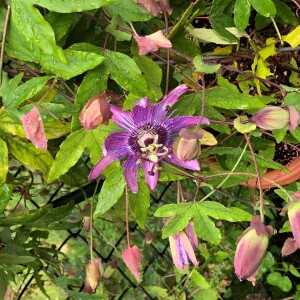
Friday Jan 10, 2025
Episode 155: The Cover Up Retrospective (Part 3)
Friday Jan 10, 2025
Friday Jan 10, 2025
Tim Kennelty and Jean Thomas join us once again for the third and final episode of The Cover Up Retrospective, where we’ve grouped some previously aired short segments together for easier access.
In the first segment, Morning Glories are a featured annual vine, but this category also extends to gourd and mini-pumpkin vines, scarlet running beans, and more. Sedums, including Hens and Chicks, are the featured ground covers (and succulents) in this episode. These herbaceous perennials, commonly known as stonecrops, are great options for rock gardens and other areas that are drought prone. Both of these vines and ground covers are low maintenance and relatively easy to grow.
The second segment discusses the benefits of sedges, bearberry, and trailing arbutus as ground covers and vines that support pollinators and provide shelter for insects and birds. Sedges are a good alternative for a ‘native’ lawn. With over 2000 species, mostly low-growing, and many ever green, they can also be used as a living mulch. Bearberry is a great option to plant under oak or pine trees as it thrives in partial to full shade environments. The name, Trailing Arbutus (a.k.a. Mayflower and Plymouth Mayflower), is derives from the fact that the flowers of this plant were the first to greet the pilgrims after their first winter. It is a native perennial subshrub that forms a creeping mat, usually four to size inches high.
The third segment focuses on flowering vines. Passionflower is a beautiful climbing vine with white and purple or blue flowers. There are now hardier varieties that can survive in zone 5. While it blooms from midsummer to early fall, each flower only lasts about one day. The Kiwi vine is another interesting option that can grow up to 33 feet long and has some varieties that are hardy to zone 4. A native of China, it has green heart shaped leaves that are spirally arranged on the stem and a flower that has a slight resemblance to the kiwi bird. Both passionflower and kiwi vine can be fragrant additions to your garden if you can provide the appropriate support for them to climb.
Host: Jean Thomas
Guests: Tim Kennelty and Jean Thomas
Photo by: Jean Thomas
Production Support: Linda Aydlett, Deven Connelly, Teresa Golden, Xandra Powers, Annie Scibienski
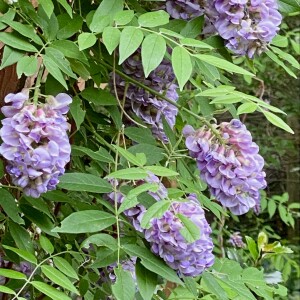
Thursday Jan 02, 2025
Episode 154: The Cover Up Retrospective (Part 2)
Thursday Jan 02, 2025
Thursday Jan 02, 2025
Welcome to The Cover Up Retrospective Part 2. This conversation features potential ground covers and ornamental vine choices to consider for your own garden. Master Gardener Volunteers Tim Kennelty and Jean Thomas share some of their favorites in these three previously aired segments.
The first segment starts with a discussion of Green and Gold (a.k.a. golden star) which is a low-growing, clump-forming herb. It thrives in full sun or part shade with long-blooming yellow flowers. This ground cover is climate resilient, slow-growing, and does not have to be ‘pampered’. Dutchman’s pipe, a relative of wild ginger, is a vine that can grow 15-30 feet in length and width. It’s a great option if you want to create a privacy screen as long as it’s given a strong support to grow on.Its tiny flower even attract hummingbirds.
Purple and white flowers are the theme of the second segment. Wild Geraniums (cranesbill) and native Wisteria are the focus. A cousin of the annual geranium, the native wild geranium is a hardy perennial that comes in a range of cultivars forming mats of foliage that look great planted under shrubs or with spring bulbs. Don’t confuse the native American Wisteria with the invasive variety that can pull down structures and spreads easily. The native version can grow 15-40 feet so it does need a sturdy support. Planted in full sun, it will reward you with fragrant blooms that attract hummingbirds and butterflies.
The final segment features golden ragwort and climbing hydrangeas. Tim likes golden ragwort for its bright yellow flowers as well as its ability to compete with invasive plants like garlic mustard and Japanese stilt grass. It thrives in moist shady locations, naturalizes rapidly and has a long spring blooming period. Spreading via underground rhizomes, it forms clumping colonies and attracts multiple bees, butterflies and moths. Climbing hydrangeas, like other vines, need a sturdy support, like plenty of water, but are not very aggressive. Known for their attractive reddish-brown bark, they are happy in partial shade and produce fluffy white clusters of lace-cap flowers.
Host: Jean Thomas
Guests: Tim Kennelty and Jean Thomas
Photos by: Tim Kennelty and Jean Thomas
Production Support: Linda Aydlett, Deven Connelly, Teresa Golden, Xandra Powers, Annie Scibienski
Resources
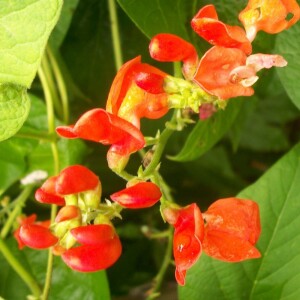
Thursday Dec 26, 2024
Episode 153: The Cover Up Retrospective (Part 1)
Thursday Dec 26, 2024
Thursday Dec 26, 2024
This Cover Up Retrospective (Part 1) is a series of previously aired short segments focused on ground covers and vines. We’ve packaged them together for your easier access. Featuring Master Gardener Volunteers, Tim Kennelty and Jean Thomas, it focuses on some of their favorite plants that do well to ‘cover up’ rock walls, trellises, as well as the ground. As with all plants, their beauty and functionality vary based on the eye of the individual gardener. This episode includes three of these segments.
The first focuses on Ajuga and Trumpet Vine. Jean starts off with a discussion on ajuga, also commonly known as bugle weed. A relative of the mint family, the speed of its lateral spread is based on light conditions, but its foliage provides its ‘star’ quality. Tim then talks about trumpet vine which can be aggressive, even though it is not ‘invasive’. Just make sure to plant it to enjoy its showy blooms on a strong structure or rock wall. It needs sun but is drought tolerant and deer resistant. Hummingbirds love it as well as bees and the sphinx moth.
The second segment features two wild strawberry plants and scarlet runner beans. Tim loves the ever green and versatile wild strawberry which spreads with runners and feeds multiple birds and other wildlife. But he also likes the barren strawberry which has yellow flowers inedible fruit, and spreads via rhizomes. One of Jean’s favorite vines in the scarlet runner bean, an annual that arrived in the US with the pilgrims. If deer visit your garden, make sure the fence this plant so that you get a chance to enjoy it.
The third segment is all about the color ‘coral’. Heuchera (a.k.a. coral bells) is a hummingbird favorite ground cover with its graceful flowers, but it is really loved for its foliage that is available in multiple colors. There are 35 species of heuchera in the USA, so there is bound to be one just right for your garden. Coral honeysuckle is native to the southern US, but hardy in our NY zones A sun lover, it can grow up to 20 feet long producing red/orange flowers. It is even deer and rabbit resistant with lots of birds enjoying its red fruit. Just make sure not to confuse it with the invasive bush honeysuckle variety.
Until next time!
Host: Jean Thomas
Guests: Tim Kennelty and Jean Thomas
Photo by: Jean Thomas
Production Support: Linda Aydlett, Deven Connelly, Teresa Golden, Xandra Powers, Annie Scibienski, Jean Thomas
Resources
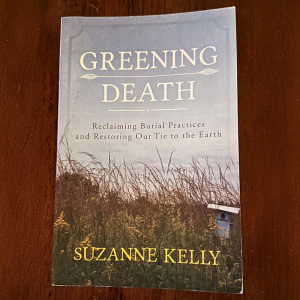
Tuesday Dec 17, 2024
Episode 152: Greening Death
Tuesday Dec 17, 2024
Tuesday Dec 17, 2024
Green burials, also referred to as natural burials, are structured to care for the dead with minimal impact to the environment.
In many ways, green burials are a return to the past with simple methods. We once disposed of our dead in earth-friendly, regenerative ways with no chemicals and biodegradable containers. Dust to dust. But over the last 150 years, death care has become toxic and polluting in the United States. Over the last two decades, however, green burials are increasingly considered a sustainable death care choice that contributes to a healthier and less wasteful planet.
In today’s world, most death rites are linked to a $15 billion market of goods and services including cultural traditions, use of chemical embalming, sealed hardwood and metal caskets, reinforced concrete vaults and liners, and restrictive cemetery rules. Rituals can vary widely along ethnic, geographical, and religious lines.
In contrast, natural burials help to curb unsustainable conventional care of a deceased body that pollute, dishonor natural decomposition processes, and provide grieving families to experiences of loss, through a connection to each other as well as the natural world.
Suzanne Kelly, an author, scholar, farmer, cemetery administrator, and resident of the Hudson Valley, explores the myths that drive many of our standard environmentally damaging burial practices. In her book, Greening Death – Reclaiming Burial Practices and Restoring Our Tie to the Earth, she explores the myths that drive many of our standard environmentally damaging burial practices and the movement to ‘green’ death while integrating death and life.
In this episode of Nature Calls; Conversations from the Hudson Valley, learn how people are reclaiming old practices of death care in new ways and thus changing the American way of death. Suzanne sheds light on the ways in which individuals can make a positive impact on the planet even in death. As the movement lays claim to greener, simpler, and more cost-efficient practices, it also offers tangible way of restoring our relationship to nature.
Hosts: Jean Thomas and Teresa Golden
Guest: Suzanne Kelly
Photo by: Teresa Golden
Production Support: Linda Aydlett, Deven Connelly, Teresa Golden, Tim Kennelty, Xandra Powers, Annie Scibienski, Robin Smith
Resources
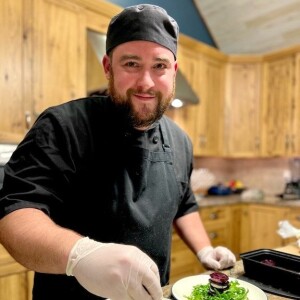
Thursday Dec 12, 2024
Episode 151: Rob Handel
Thursday Dec 12, 2024
Thursday Dec 12, 2024
Rob Handel is a chef, forager, caterer and educator. He joins Nature Calls: Conversations from the Hudson Valley in a discussion about his farm-to-table business both in-home and as a corporate caterer. A native of the Hudson Valley, he grew up with a love of nature. He tends to be a trend-setter. Lilac lemonade anyone?
Rob likes to educate folks about how to bring wonderful ingredients, that are farmed and foraged in the Catskills and the Hudson Valley, to plates across Upstate New York. With experience catering locally sourced meals for groups ranging in size from 2-200, he provides unique and thoughtful fare that cannot be found elsewhere. He pairs locally farmed and foraged produce with the grass-fed and pastured meats and poultry.
If you are interested in restaurant quality meals, cooking and foraging presentations, hand on classes, or foraging walks throughout the Northeast, give Rob a call! With years of experience working in unfamiliar home kitchens, bringing all the tools necessary to prepare a multi-course meal, he prepares, cooks, serves AND cleans up, leaving the kitchen clean and ready for the next day. He sounds perfect for bachelorette/bachelor parties, birthday weekends, family vacations, and holiday parties.
Hosts: Jean Thomas and Teresa Golden
Guest: Rob Handel
Photo by: Rob Handel
Production Support: Linda Aydlett, Deven Connelly, Teresa Golden, Tim Kennelty, Robin Smith, Annie Scibienski
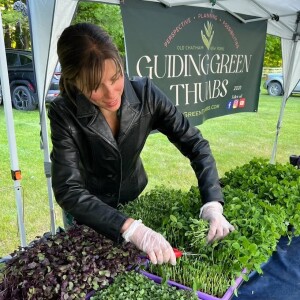
Thursday Dec 05, 2024
Episode 150: Kid-Friendly Gardening
Thursday Dec 05, 2024
Thursday Dec 05, 2024
Master Gardener Volunteer, Shelley Haefner, from Old Chatham (Columbia County) is passionate about gardening, nature photography and the great outdoors. She re-joins the Nature Calls: Conversations from the Hudson Valley podcast for an informative discussion about Kid-Friendly Gardening.
As a mother of two, and the organizer of a summer gardening program for children in Chatham (NY), Shelley has lots of ideas and practical experience to get kids engaged in gardening and keep them interested throughout the season.
Perhaps the easiest way to get children engaged with nature and gardening is to make it fun and treat it as a game or play. Consider making a bug bingo game or treating the garden as a place for a scavenger hunt. A pole bean race is one way for kids to have fun. Have you thought about using hornworms with parasitic wasps to introduce a child to pest control? Using edible flowers (pansies, nasturtiums, herbs, etc.) in an arts and crafts project is another possibility.
Obviously, gardening tasks should be tailored or customized to the age, attention span, and the interests of the individual child. Some are interested in getting their hands dirty. Others prefer to look at the garden from a more scientific perspective. Others can be encouraged to get engaged in learning about nature from an artistic or culinary perspective. Pizza gardens anyone? How about a sensory garden? Kids can also create a photo journal of their experiences in the garden. Shelley offers lots of ideas and suggestions based on the age of the child and their interest areas.
Listen in to learn more about how to engage children in gardening activities and make some memories with your family.
Hosts: Jean Thomas and Teresa Golden
Guest: Shelley Haefner
Photo By: Shelley Haefner
Production Support: Linda Aydlett, Deven Connelly, Teresa Golden, Tim Kennelty, Xandra Powers, Annie Scibienski, Robin Smith

